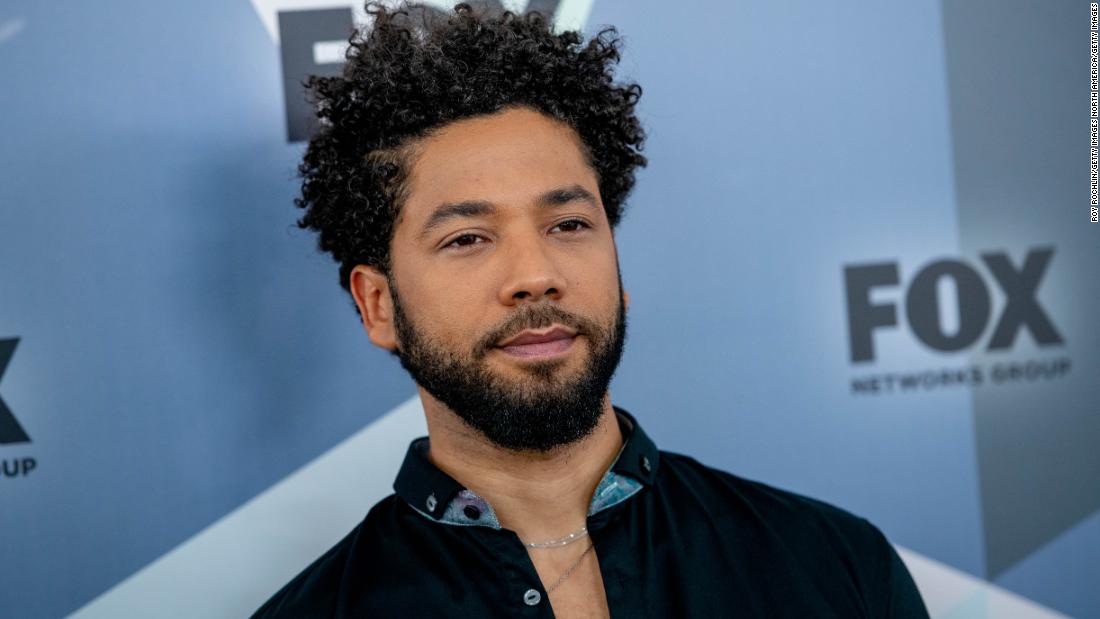
"The destructive power of absolute beliefs"
On Friday I took Jamie to see "Network" on Broadway. We loved it. One of the monologues by Bryan Cranston's character Howard Beale rang in my ears all weekend.
"Here is the truth: the real truth, the thing we must be most afraid of," he said, "is the destructive power of absolute beliefs -- that we can know anything conclusively, absolutely -- whether we are compelled to it by anger, fear, righteousness, injustice, indignation. As soon as you have ossified that belief, as soon as you start believing in the absolute, you stop believing in human beings, as mad and tragic as they are... in all their complexity, their otherness, their intractable reality... The only commitment any of us can have is to other people..."
...And this brings us to the Jussie Smollett case.
Many people figured Smollett was telling the truth when he said he was assaulted in the middle of the night by two strangers. Did the allegation immediately become a political weapon when TMZ reported that Smollett said the attackers called Chicago "MAGA country?" Yes. Was there a rush to judgment in some quarters? Yes. Did some liberal celebs and Democratic politicians issue statements that weren't supported by the facts? Yes. Did some Trump supporters feel insulted by the news coverage of the case? Yes.
But at the same time: Was it newsworthy when the Chicago police opened an investigation into Smollett's accusation? Yes. Did high-quality news organizations approach the case with caution? Yes. Did local and national news organizations poke holes in his "hate crime" account? Yes.
In short: It's really complicated. So here's the latest...
Smollett's camp still says he is a victim
Police sources told CNN and other outlets on Saturday that new evidence suggests Smollett orchestrated the attack. But his attorneys responded by saying that he is a "victim of a hate crime" who did not play a role in the attack...
What the Chicago PD is saying
Chicago police detectives have been wanting to follow up with Smollett since Friday night. "We need to speak to him now," a police spokesman told me on Saturday, to corroborate info from the two men who were persons of interest — both of whom are now cooperating in the case.
Per spokesman Anthony Guglielmi's most recent tweet, they're still waiting to speak with Smollett... The ball is in Smollett's legal team's court...
What Fox is saying
In the immediate aftermath of the alleged attack, Fox — which makes and airs "Empire" — took Smollett's word for it and said the company "stands united" against any act of violence and hate.
A few days ago, amid rumors that Smollett might have concocted the attack because he was concerned about being written off "Empire," Fox said that was ridiculous: "He remains a core player on this very successful series and we continue to stand behind him." This weekend Fox reps said the company had no new comment...
How the narrative is changing
The national outrage about Smollett's apparent suffering "was fueled in part by celebrities who spoke out loud and strong on social media," the AP's Lindsey Bahr wrote. "But the outrage has now been replaced by surprise, doubt and bafflement..." And the authorities still aren't commenting, so this case is still a mystery...
Two competing definitions of "media"
In the reactions to the Smollett developments, I see two competing definitions of "media."
There's one view, promoted by professional anti-media messengers like Donald Trump Jr., who portray the media as one big blob. He tweeted that "media/Hollywood desperately wanted" Smollett's claims "to be true to push their hate of conservatives."
Then there's another view — which I know to be true — that the "media" is made up of thousands of outlets and hundreds of thousands of people, with great journalists and lazy aggregators, with no single mission or belief system. Are there mistakes and built-in biases? Definitely. But most journalists are trying their best to report what's true. This competitive, chaotic world of media contradicts Don Jr.'s imagined world.
My question: What's the best way to help people who see a singular "media" enemy to see the wide world of "media" that actually exists?
Sunday's "Reliable" debate
Kmele Foster and Liz Plank discussed the Jussie Smollett rush to judgment on Sunday's "Reliable Sources." Foster urged skepticism on the part of the press -- he said some people had doubts about Smollett's story early on, but "were afraid to raise the questions because of the intersectional nature of this particular accusation." Afraid their motives would be challenged.
Plank was more concerned about the downstream effects of a potential hate-crime hoax. "The fact that one robbery was faked does not mean robbery is not a problem," she said. "The fact that there is one false rape accusation does not mean that there's no rape. We have to cover these issues as trends and as patterns." Bill Carter also joined in... Watch part one and part two of the segment here...
FOR THE RECORD
-- Presidents Day becomes protest day: MoveOn says it is organizing hundreds of protests against the "national emergency" on Monday... (Bustle)
-- Read more of Sunday's "Reliable Sources" newsletter... And subscribe here to receive future editions in your inbox...
-- Have you heard all the "coup" talk on Fox News? We dissected it on Sunday's show... (CNN)
No comments:
Write comments